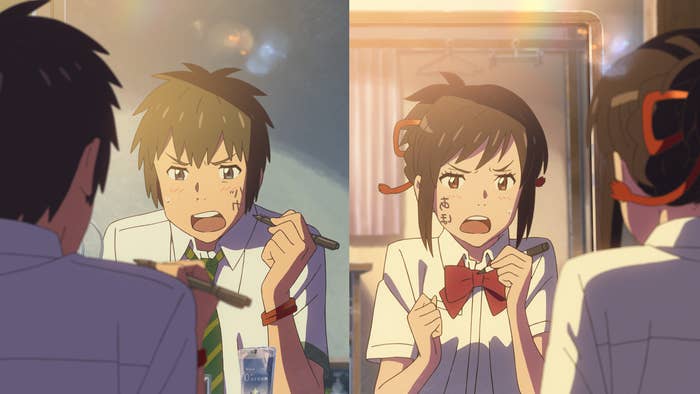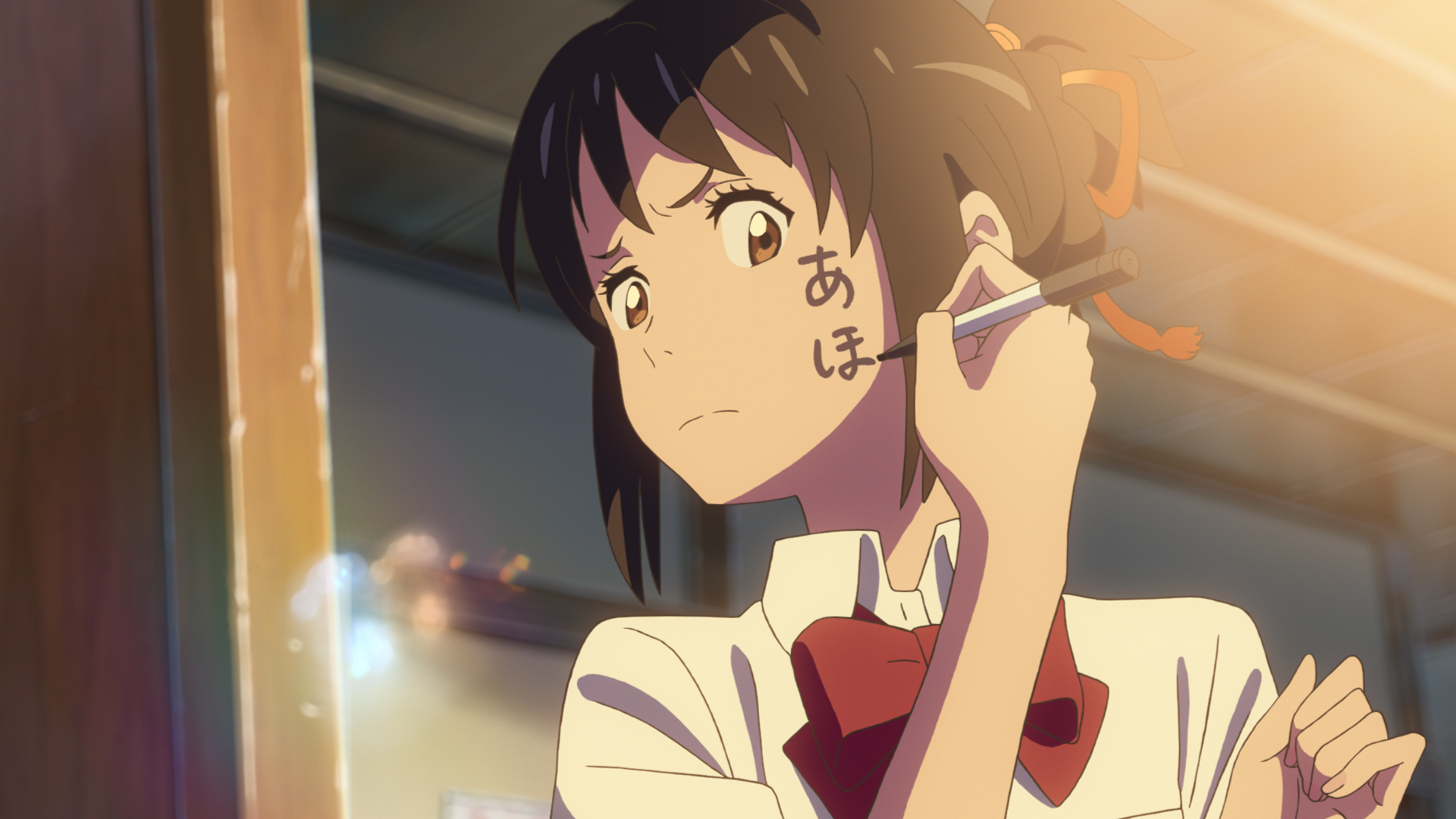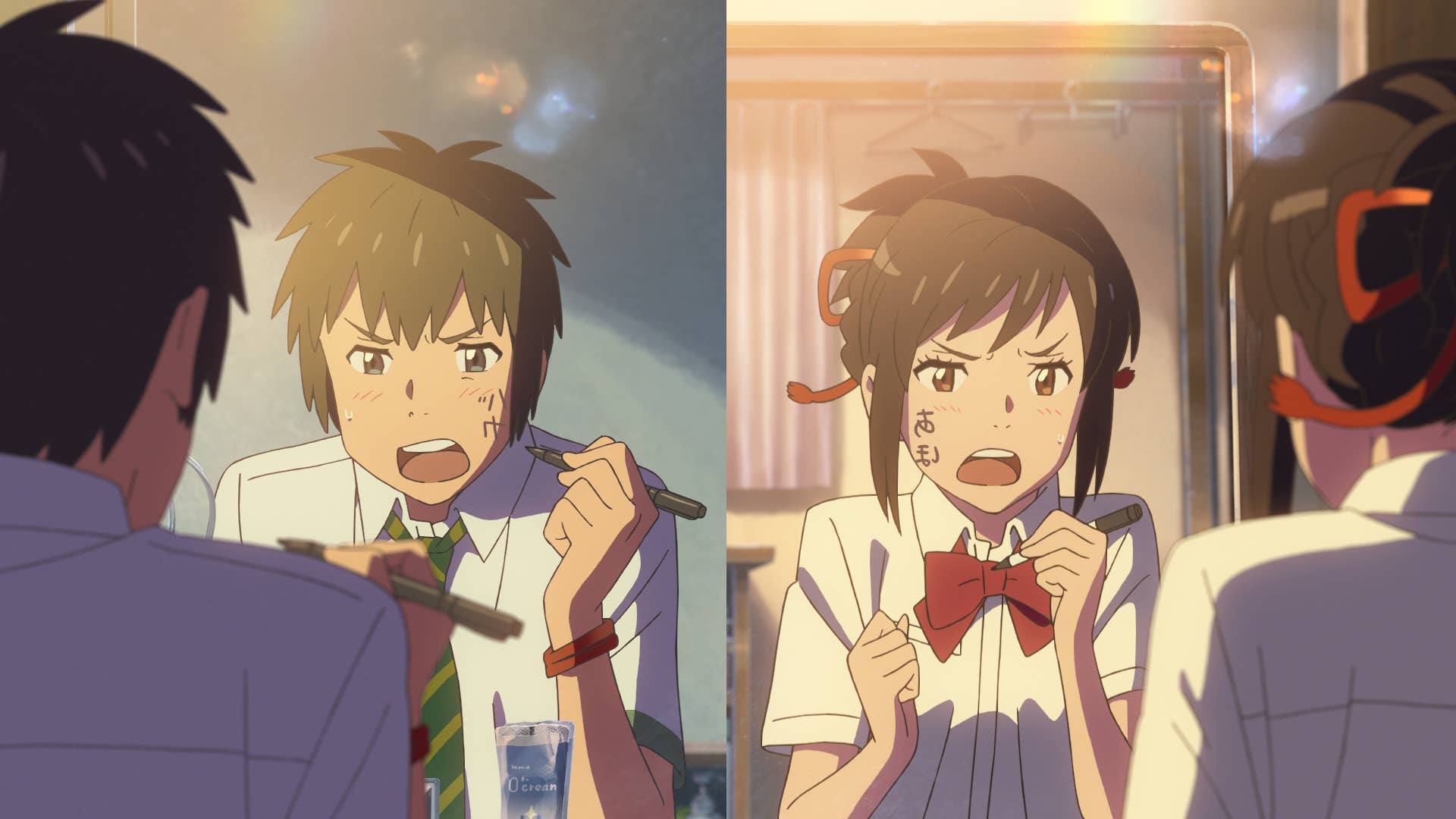
In 2014, the legendary animation house Studio Ghibli announced it was taking a hiatus, following the retirement of it’s co-founder, the genius director Hayao Miyazaki. Now anime fans are searching for someone to fill that void, and to deliver beautiful, transcendent animated movies that appeal to audiences of all ages and show that Japanese cartoons are more than just giant robots and scantily clad schoolgirls.
And one name that people are suggesting is Makoto Shinkai. Starting out in videogames, for the last decade or so Shinkai has been producing wonderful, heart-touching films like 5 Centimeters Per Second and Children Who Chase Lost Voices, which tell the tales of relatable relationships and emotions stretched across time and space, and have won him fans across the world. His latest film however, has become a phenomenon in Japan. Your Name is the story of two Japanese teenagers, Taki, who lives in central Tokyo, and Mitsuha, a young girl from the country, whose lives become intertwined when a magical comet causes them to switch bodies at random. It’s an incredible sweet, sad piece of drama, which mixes fantasy themes with realistic teenage heartbreak.
Since its release in its home country in August,Your Name has made over 10bn yen (£76m), and has been at the top of the Japanese box office for seven weeks and counting. It also already has a devoted teenage fanbase, with fans even making pilgrimages to locations featured in the film. And thanks to this success, Your Name is the rare Japanese animation to get a full UK cinema release next month, as well as being the first anime to have been in the official competition at the London Film Festival. Makoto Shinkai was in London for the festival, and we caught up with him to talk about the film’s success, the importance of backgrounds, and playing down those Miyazaki comparisons.
View this video on YouTube
Your Name is the first anime film to ever been in the official competition at the London Film Festival. How does that feel?
I’m extremely happy. I’s unbelievable. I lived here for little bit nine years ago, and I used to walk down the South Bank past the BFI cinema. It’s great to have my film shown there.
I've been reading about the film's incredible reaction in Japan. As well as being really successful at the box office, it seems to have really resonates with audiences, especially teenagers, with them even visiting the real places from the film. What's it like to make something that connects with people in a way like that?
I had a vague target audience when I was making the film. But I didn't expect this much scale, 10 million people have seen it, who'd have thought!? I think it’s word of mouth, rather than down to my skills or talents or whatever. And I'm feeling really uncomfortable with the success!
Where did the genesis of the story come from — is it based on your youth? Obviously I’m sure you didn't switch bodies with anyone, but are there moments or feelings you had as a teenager in there?
Yes. I wanted to make a story about a boy and a girl who haven't met yet, but are to going to. I think that's just a normal situation for any youngster - there are more people that they haven't met than they have in life. So I wanted to write a story about possibility in life, about how someone could change your life completely. Obviously I haven't swapped bodies with anyone — at least not yet! But that's a tool to express that story. It could have even been a social network service, rather than body swapping.
The film is about a girl and a boy swapping bodies. The younger generation seems a lot less bothered about defining gender, and transgender issues and the like. That's not the main focus of the film, but was it something you considered it to be about at all?
That's a very interesting opinion. But I haven't read anything about Your Name from the LGBT point of view. When I was making the film, I didn't really want to make this a gender issue at all. The body swap is a quite common theme in Japanese cinema and books. There's a movie called New Students from the 1980s, and its pretty much {the same as} this — boy becomes the girl, girl becomes the boy — and it was comedy about the social roles. But I don't think it would work now. What I wanted to say was yeah the boy might be a little bit girly, but there’s nothing wrong with that. And vice versa. So no, it's not about a gender issue.




